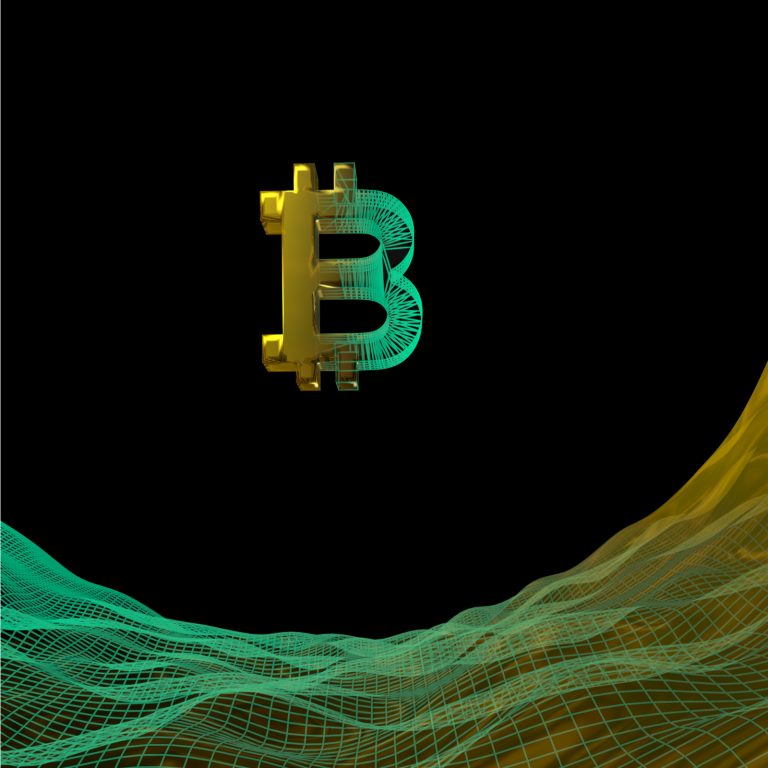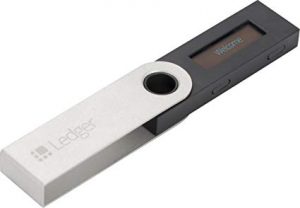Latest news about Bitcoin and all cryptocurrencies. Your daily crypto news habit.

If you already own bitcoin, this article’s not for you – though you’d probably have appreciated it when you were first starting out. This one goes out to anyone who’s yet to dip a toe into the world of cryptocurrency, but is seriously considering it. Over the course of this guide, you’ll discover the best ways to buy cryptocurrency, what to buy, where to buy it, and where to store it.
Also read: Coinbase: 42% of World’s Best Universities Offer Crypto Courses
It’s Never Too Late to Buy Your First Bitcoin
As the adage goes, the best time to get into bitcoin was eight years ago and the next best time is today. With one bitcoin divisible to 100 million places, there’s more than enough to go around, enabling first-time buyers to acquire as much or as little as they please. And don’t feel you’re obliged to buy bitcoin either – there’s a whole world of cryptocurrency out there, including coins with specific features such as maximizing privacy.
Some people purchase cryptocurrency for investment purposes, others to facilitate private online purchases, others use crypto as a sort of savings account, and others as a hedge against inflation that is devaluing their national country. There’s no ‘right’ reason to buy cryptocurrency; even if you’re simply curious about the technology underpinning it, purchasing a small amount of crypto is the best way to understand it.
Depending on where you live and who you associate with, you’ll hear a lot about certain cryptocurrencies in particular. In developing nations such as Venezuela and Nigeria, for instance, Dash seems to be unusually popular. Many Asian countries are big on ripple (XRP) and ethereum (ETH). Here are Bitcoin.com, we’re fond of bitcoin cash (BCH), which is cheap and fast to send, but we also enable people to purchase bitcoin core (BTC) and offer a popular mobile wallet that supports both.
What to Know Before You Buy
While it is no one’s place to tell you what to buy, there are some coins you should probably avoid as a first purchase. Be wary of any cryptocurrency you’ve been recommended that’s ‘certain’ to go up in price or that promises a ‘guaranteed return’. Just because a friend made spectacular profits off a particular coin doesn’t mean you should follow their example – in fact, it’s often a sign that you should steer clear.
If you are pondering dipping a toe into the waters of cryptocurrency – a move that is likely to be followed by full immersion – you’re hopefully doing so for reasons other than to ‘get rich quick’. While it is likely that certain crypto assets will appreciate in value significantly over the coming years, others will stagnate or may even die off altogether. For every chart looking like this:
There are five that look like this:
Cryptocurrencies are still relatively new, and as such can be volatile. As a general rule, the smaller the market cap of the coin (i.e the price per coin multiplied by its total circulating supply), the higher the volatility. This is because small market cap coins have much lower liquidity, meaning that even a modest buy or sell order can alter its price, and have a smaller community of users. Bitcoin, on the other hand, can be regarded as the gold standard of cryptocurrency, having been there from the start and boasting millions of users.
Where to Buy Cryptocurrency
 Aside from pondering what to buy, there’s the small matter of where to buy. Here at Bitcoin.com, it’s possible to buy bitcoin cash and bitcoin core using your credit card, but we appreciate that option won’t be for everyone. If you don’t have a credit card, or are looking to acquire other crypto assets, there’s a range of options at your disposal. Localbitcoins.com is an extremely popular peer-to-peer marketplace where you can buy bitcoin core (BTC) and there’s also its counterpart, Localbitcoincash.org. These sites will enable you to purchase cryptocurrency via methods such as bank transfer, Paypal, or in person using cash. Alternatively, you can buy cryptocurrency from an exchange such as Coinbase, or via apps such as Circle (US) and Wirex (Europe), but you will be required to submit identification documents before you can make your first purchase.
Aside from pondering what to buy, there’s the small matter of where to buy. Here at Bitcoin.com, it’s possible to buy bitcoin cash and bitcoin core using your credit card, but we appreciate that option won’t be for everyone. If you don’t have a credit card, or are looking to acquire other crypto assets, there’s a range of options at your disposal. Localbitcoins.com is an extremely popular peer-to-peer marketplace where you can buy bitcoin core (BTC) and there’s also its counterpart, Localbitcoincash.org. These sites will enable you to purchase cryptocurrency via methods such as bank transfer, Paypal, or in person using cash. Alternatively, you can buy cryptocurrency from an exchange such as Coinbase, or via apps such as Circle (US) and Wirex (Europe), but you will be required to submit identification documents before you can make your first purchase.
To ensure you’re not being overcharged, check Coinmarketcap or our own Satoshi Pulse for the latest prices on all major cryptocurrencies. Alternatively, if you’re buying BTC, BCH, or ETH, simply type the name into Google alongside your native fiat currency for instant price data. Note that when purchasing from a site like Localbitcoins.com, you may be charged a premium of 5-7% over the market price. Similarly, credit card purchases incur a fee. Aside from a handful of countries where access to cryptocurrency is limited, you should not be paying more than a few percentage above market price at most, however.
Where to Store Your Cryptocurrency
When you purchase cryptocurrency from one of the aforementioned platforms, it will be credited to your built-in wallet associated with that account. With Localbitcoins.com, for instance, you’ll see something like this:
You could simply leave your cryptocurrency in your wallet until you eventually decide to sell it, but that’s not recommended. For one thing, until you start to use it – sending a little to friends and family; purchasing goods and services – you can’t begin to appreciate the value and versatility of cryptocurrency. And for another thing, using the built-in wallet provided by the likes of Coinbase or Circle is unwise because if your account should get compromised – or the entire platform suffer a major hack – you could lose all your funds.
One of the best things about cryptocurrency is that unlike money stored in a bank account it is yours and yours only once it’s stored in a wallet that you hold the private key to, whereupon no one, be it friend or foe, financial provider or government agency, can freeze or seize it. With close to 3 million downloads, the Bitcoin.com wallet is a popular choice for storing bitcoin cash and bitcoin core. Other popular mobile wallets that grant you full custody of your crypto assets include Edge and BRD. If you’re intending to hold onto your cryptocurrency for a long time, and won’t be needing to access it frequently, you may prefer to use a hardware wallet.
There’s a lot more to learn about cryptocurrency and our Getting Started page will link you to further resources. If you intend to acquire cryptocurrency, don’t invest more than you can afford to lose and do your own research before taking the plunge. Then, once suitably informed, go ahead and make your first purchase. Once you’ve got skin in the game – or rather coins in your wallet – you’ll begin to appreciate the power of cryptocurrency.
What advice would you give to someone purchasing cryptocurrency for the first time? Let us know in the comments section below.
Images courtesy of Shutterstock.
Need to calculate your bitcoin holdings? Check our tools section.
Disclaimer
The views and opinions expressed in this article are solely those of the authors and do not reflect the views of Bitcoin Insider. Every investment and trading move involves risk - this is especially true for cryptocurrencies given their volatility. We strongly advise our readers to conduct their own research when making a decision.





